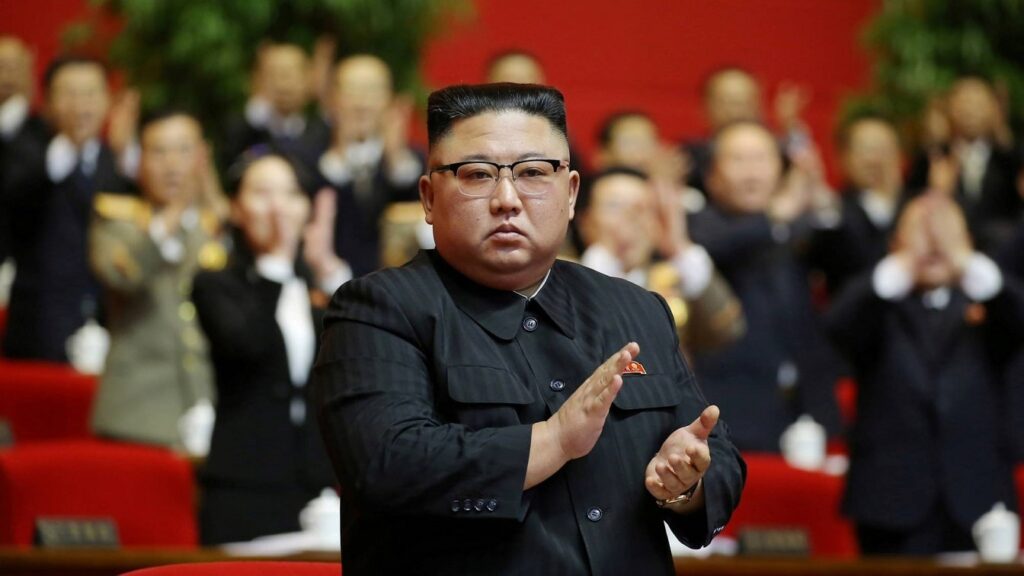North Korea presents itself to the world as a utopian socialist state. However, behind its hermetic facade and intense propaganda lies a reality marked by endemic and widespread corruption that systematically undermines respect for and the guarantee of the fundamental human rights of its population. Corruption in North Korea is not simply a problem of dishonest officials; it is deeply rooted in the very structure of the regime, fueled by opacity, a lack of accountability, and the omnipresent control of the Workers’ Party of Korea (WPK).
The Multifaceted Nature of Corruption in North Korea:
Corruption in North Korea takes various forms, permeating all levels of society and the state apparatus. Some of the most common manifestations include:
- Extortion and Bribery: Officials of all ranks demand bribes in exchange for basic services, permits, protection, or simply turning a blind eye to illegal activities that are nonetheless necessary for survival in a struggling economy. This affects everyone from small traders in the jangmadang markets to state-owned enterprises seeking favors.
- Embezzlement and Diversion of Public Funds: State resources, which should be allocated to the provision of essential public services such as healthcare, education, and infrastructure, are frequently diverted for the personal enrichment of officials and elites close to the regime. The lack of transparency in state financial management facilitates this practice.
- Abuse of Power and Nepotism: Positions of authority and influence are used to benefit family members, friends, and those loyal to the regime, perpetuating a clientelist system where merit and ability are relegated. This translates into the inefficiency of institutions and a lack of access to opportunities for the general population.
- Smuggling and Illicit Trade: Given the severe shortages and international sanctions, the smuggling of consumer goods, raw materials, and even weapons has become a significant source of illicit income for individuals and organizations linked to the state. Corrupt officials facilitate these activities in exchange for economic benefits.
- Labor Exploitation and Human Trafficking: Corruption also manifests in the exploitation of workers (through forced labor programs), where officials profit from precarious working conditions and the lack of labor rights protection. Human trafficking, although difficult to fully document, is also facilitated by the corruption of authorities.
The Devastating Impact on Human Rights:
Widespread corruption in North Korea has a direct and devastating impact on the enjoyment of virtually all fundamental human rights:
- Right to Food: The embezzlement of funds intended for agriculture and food distribution, as well as corruption in the state rationing system, contributes to chronic food insecurity affecting a large part of the population. Bribes to officials in charge of distribution are often necessary to access insufficient rations.
- Right to Health: Corruption in the healthcare system, including the diversion of medicines and medical equipment, the demand for informal payments for medical care, and the lack of investment in healthcare infrastructure, severely deteriorates the quality and accessibility of health services for most North Koreans.
- Right to Education: Although education is theoretically free, corruption manifests in the demand for «voluntary» payments to schools, the embezzlement of educational funds, and the lack of basic resources. This affects the quality of education and can prevent access to it for the most vulnerable families.
- Freedom of Movement: While state control over movement is strict, corruption allows some individuals, through bribes to border guards and officials, to attempt to cross the border in search of better opportunities or to escape repression. However, this also exposes them to exploitation and danger.
- Freedom of Expression, Association, and Assembly: Attempts to express criticism or form independent organizations are severely repressed. Corruption within the security and surveillance apparatus ensures that those who challenge the regime are punished without due process.
- Right to a Fair Trial and Due Process: The judicial system in North Korea lacks independence and is subordinate to the Party. Corruption within law enforcement and the judicial system means that decisions are often made based on bribes, political loyalties, and party directives, rather than the law. This denies citizens the right to a fair trial and protection against arbitrary arrest and punishment.
The Kim Jong Un Regime and Corruption:
The Kim Jong Un regime occasionally stages anti-corruption campaigns, such as the enlarged meeting of the Party Secretariat to address minor cases of local corruption. However, these actions are usually selective and strategic, aimed at consolidating power, eliminating perceived rivals, or projecting an image of rectitude without addressing the systemic corruption that benefits the central elite.
Corruption is, in many ways, an inherent component of the North Korean system of governance. The lack of transparency, the absence of a free press and an independent civil society, and the absolute concentration of power in the hands of the leader and the WPK create an environment conducive to large-scale corruption.
Finally, corruption in North Korea is not a peripheral problem; it is a central factor that perpetuates the systematic violation of the human rights of its population. It undermines the provision of basic services, restricts fundamental freedoms, erodes the rule of law, and exacerbates social inequalities. Any genuine effort to improve the human rights situation in North Korea must comprehensively address the root of the problem: the endemic corruption rooted in the authoritarian structure of the regime. Without transparency, accountability, and a system of government based on respect for human rights, corruption will continue to be a corrosive force that denies the North Korean people a dignified and just life.

